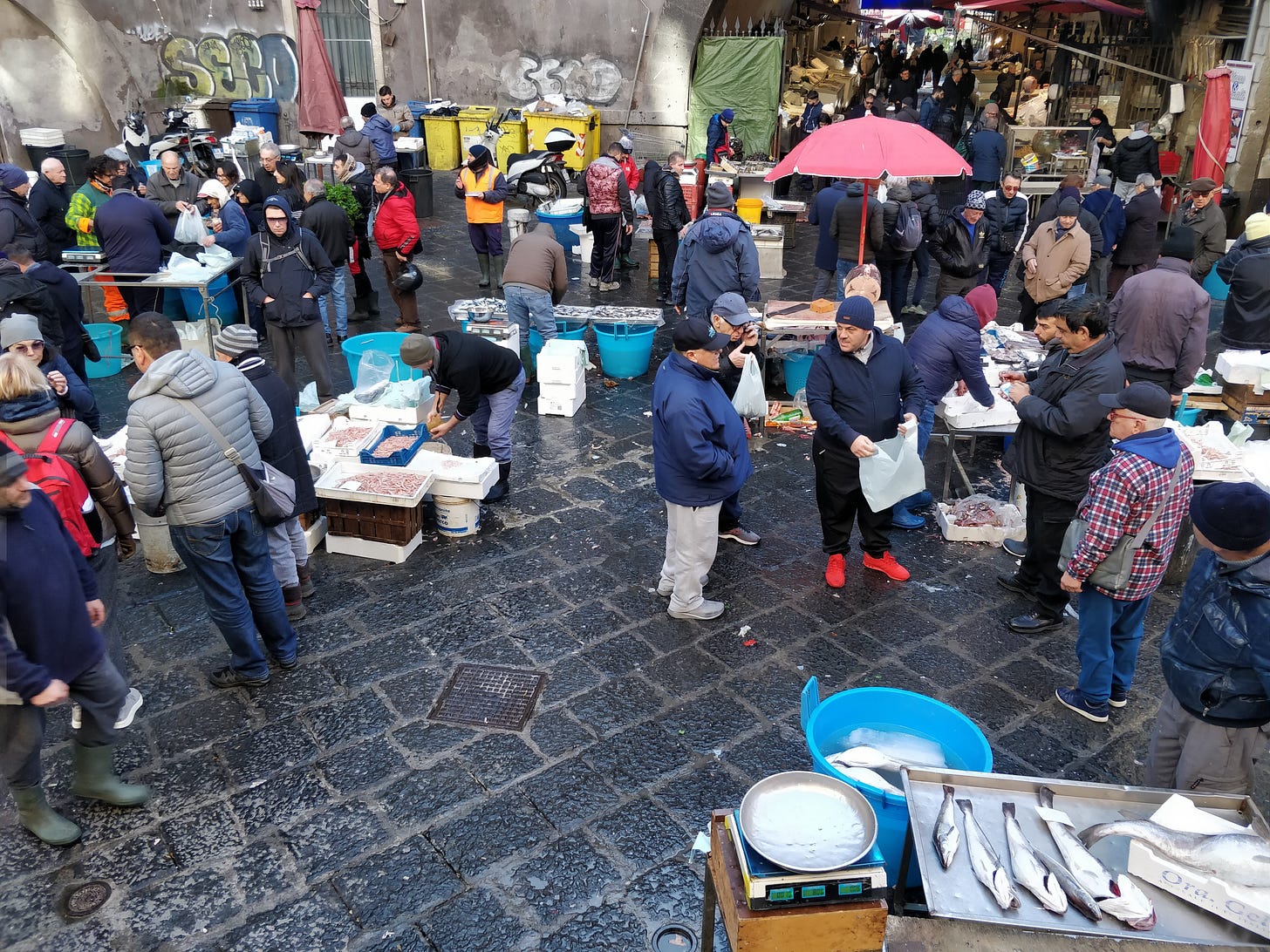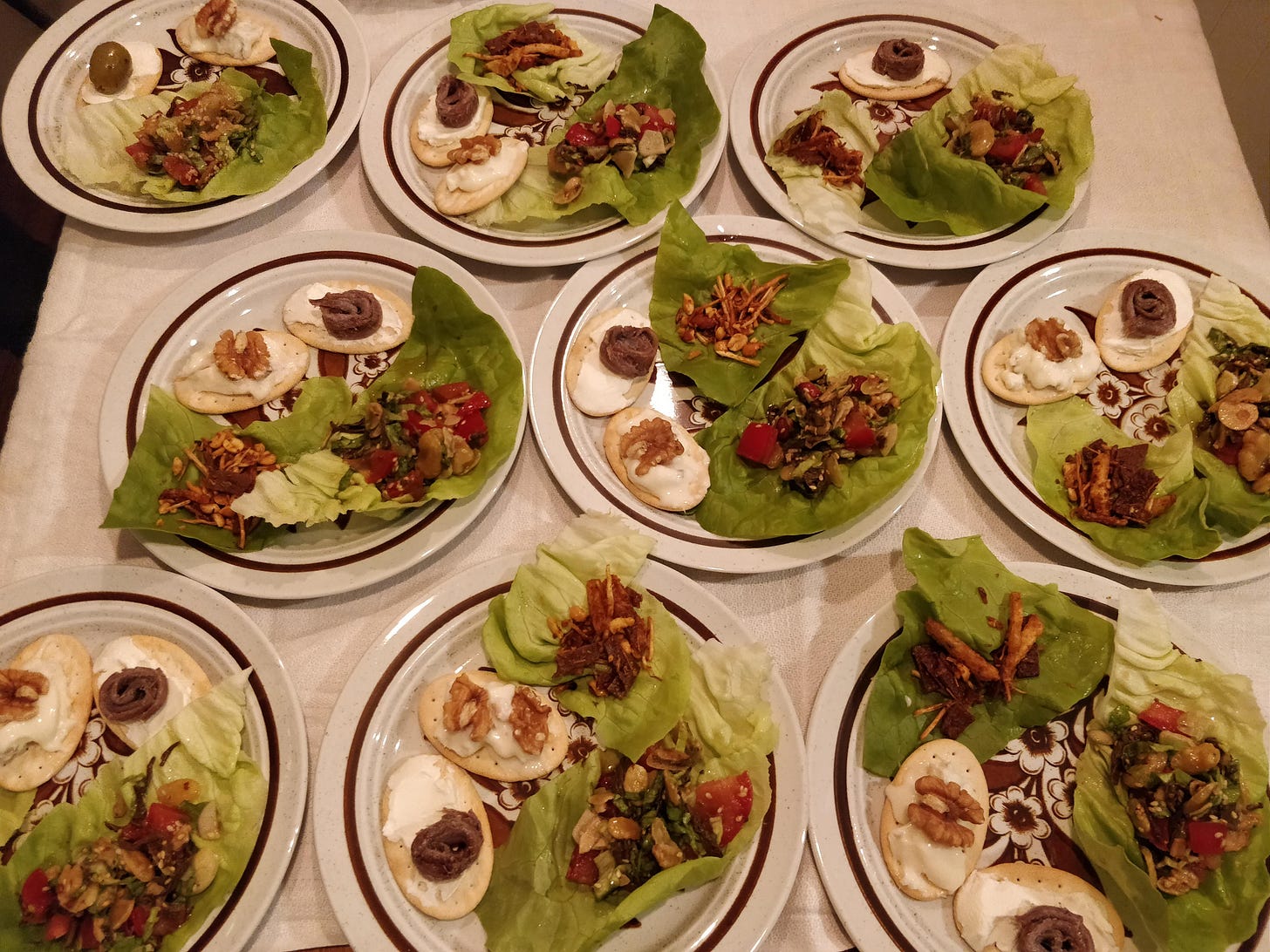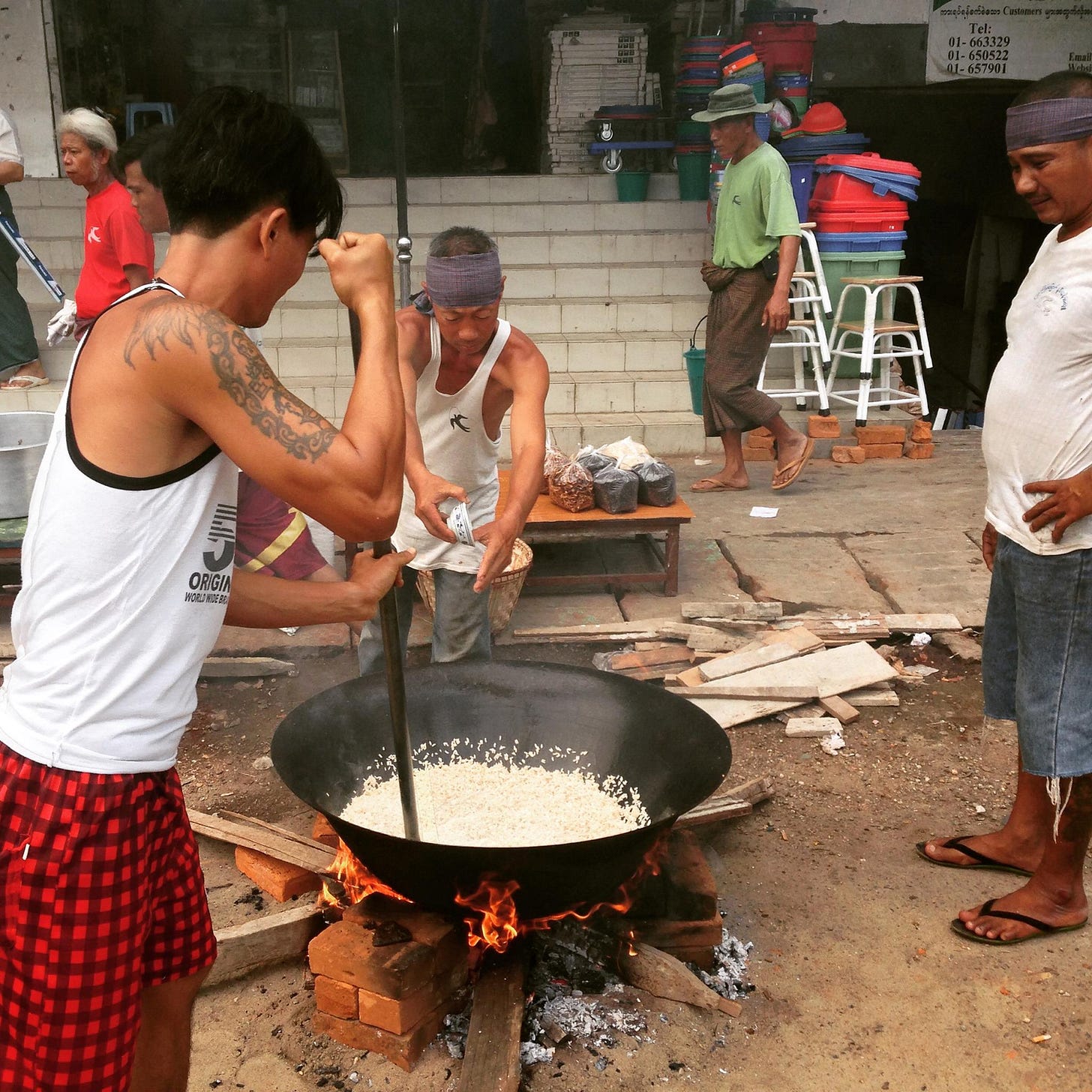Prepping for the Summit
A newsletter about food systems, climate change and everything connected to them
I’m dedicating this week’s newsletter (and likely next week’s) to the Food Systems Summit’s Pre-Summit which begins on Jul 26 in Rome.
What is it?
The three-day event - from Jul 26 - 28 - is a precursor to the main Food Systems Summit (FSS) which will be held in September in New York.
As with many events being held in COVID-19 times, it’s taking a ‘hybrid’ format - in-person events with selected delegates will take place at the headquarters of the Food and Agriculture Organization (FAO) in Rome and this is being supplemented with a slew of virtual events.
Why should I care?
Because it could have far-reaching implications on one of the most important things for our continued existence on earth - food.
The Pre-Summit will set the tone and ambition for the FSS which is looking to embark on a “food systems transformation”, a term that has become a buzzword. It is also so broad it can mean different things to different people.
But changing the way we produce, process, transport, consume and discard food is also an “existential necessity”, Alan Dangour, Professor in Food and Nutrition for Global Health at the London School of Hygiene and Tropical Medicine, told a panel discussion I recently moderated.
“It’s really not possible to imagine a world in 10 years’ time where we carry on as we do now. Everything has to change if we’re going to protect human health and the planet,” added Dangour, who is also the Director of the Centre on Climate Change and Planetary Health.
Just a recap on why he said what he did. The current food systems are -
Unfair and inequitable - for example, farmers and marginalised groups are some of the poorest/ most food insecure people in the world,
Environmentally destructive - food systems account for nearly a third of total manmade greenhouse gas emissions and are one of the main drivers of deforestation and biodiversity loss,
Killing us instead of nourishing us - rising levels of obesity and diet-related illnesses as well as worrying levels of hunger and malnutrition, as highlighted by latest reports from Oxfam and the UN.
The nitty-gritty
FSS has said it plans to “awaken the world to the fact that we all must work together to transform the way the world produces, consumes and thinks about food” but a lot of that work will actually be done at the Pre-Summit.
Here, delegates will listen to “the latest evidence-based and scientific approaches to food systems transformation from around the world, launch a set of new commitments through coalitions of action and mobilize new financing and partnerships”.
Many people I’ve spoken to, both critics and supporters of the whole process, see the Pre-Summit as key to the kind of commitments and actions that will come out of FSS. There is an FAQ on what the Pre-Summit is, what it plans to do, etc and you can also find the jam-packed schedule here.
On a much broader note though, food is something that we interact with every single day, multiple times a day, whether you’re someone who lives to eat or someone who eats to live - I’m obviously the former but not judging anyone in the latter camp - and we should all care about where it’s coming from, how it’s being produced, what harm is being done in the process and how we can create a better system.
The disagreements
There are many groups, from grassroots organisations representing small-scale farmers to large international charities that have a presence in almost all countries, that are vehemently opposed to the FSS. I’ve documented some of the disagreements here but let me break it down briefly for you.
Like I said a few weeks ago, pretty much everyone I’ve interviewed over the past 18 months agrees there’s an urgent need for the FSS. What they can’t agree on is how it should be done and who should be involved. That is what it boils down to.
Both sides agree we need healthy, resilient, and green food systems. But what do they look like? How will they work? Who runs them? Who are they accountable to?
Multistakeholderism versus multilateralism has emerged as a big bone of contention.
The FSS has embraced the “multistakeholderism” model for this summit, where anyone who has a stake in the discussion at hand takes part and often as equals, as opposed to a “multilateralism”, established after World War II or World War II where governments were sole decision-makers.
Multistakeholderism has been touted as a new form of global governance that is more inclusive, particularly on highly technical issues such as online security where you need inputs from a broad swathe of experts and interest groups.
However, there are serious concerns that using this when discussing food systems issues undermines the very real power imbalances and quite different motivations between super-rich corporations and poor farmers and consumers.
Groups opposed to this admit that multilaterial model isn’t perfect but say governance structures built up over the years are working and feel they have more of a say in such spaces.
This leads us to the other big complaint - that the FSS does not give human rights issues the prominence they deserve.
To farmers and human rights activists, a lot of the injustices in current food systems stem from big agribusinesses and governments abusing their power, like grabbing land that belongs to the poor, paying farm workers a pittance while not providing them with any protection, or enticing consumers with highly processed and very unhealthy food using misleading marketing.
Again, linked to the multistakeholder model and the attention (or lack thereof) of right issues are concerns that FSS could be setting up parallel structures to food systems governance, to replace existing ones that are perhaps not as corporate-friendly.
Now, I need to make it clear that all of this is what the opponents of the FSS feel is happening.
The FSS Secretariat itself has said these allegations are not true, no agribusinesses get special treatment and that they welcome everyone to take part. But they are sticking with the multistakholder model and this seems to be a deal breaker for some of these groups who are organising parallel events next week.
This includes the Civil Society and Indigenous Peoples’ Mechanism (CSM) under the UN. This is a group of more than 500 organisations, including the world’s largest farmers’ group La Via Campesina (LVC).
They published their criticism of this multistakeholder approach and the outcome of their meeting with the UN Deputy Secretary General (frank but neither side changed their minds) here. They are planning a counter-mobilisation from Jul 25-28.
The other group that’s organising another parallel event is People’s Coalition for Food Sovereignty. You can find details of what they’re planning here and here. They are also holding “The Global People’s Summit on Food Systems” in September, around the same time as FSS.
So a lot is happening and while all these might sound like inside baseball, these meetings can and should have material impact on your eating habits. Watch this space.
Further reading & watching
An interesting report on multistakeholderism from the Netherlands-based Transnational Institute (TNI)
Digital Peace Now’s write-up of how multistakeholderism is crucial for online peace and security.
Marion Nestle’s Food Politics blog has a good rundown of FSS’s visions as stated by the UN and the FSS and the criticisms.
Last but not the least, here is a panel discussion I moderated early this month about some of these pressing issues. It was part of the ANH Academy’s 2021 conference. ANH stands for Agriculture, Nutrition Health and is led by the London School of Tropical Hygiene and Medicine (LSHTM). It was one of the most interesting and insightful discussions I had the good fortune to chair and I hope you will spare a few minutes to listen to the speakers, even if not the full 80 minutes.
As always, have a great weekend. Please feel free to share this post and send tips and thoughts on twitter @thinink, to my LinkedIn page https://www.linkedin.com/in/thin-lei-win-44332b/ or via e-mail thin@thin-ink.net.






